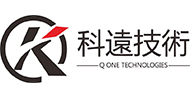1.75 billion yuan! Xintang announced the completion of its cash acquisition of Panasonic Semiconductor.
1.75 billion yuan! Xintang announced the completion of its cash acquisition of Panasonic Semiconductor.
International electronics business learned that microcontroller manufacturer Xintang Technology announced yesterday (1) that it has completed a $250 million (RMB1.75 billion) acquisition of Panasonic's semiconductor business PSCS. The case was due to be completed in June this year, but was not announced until September because of the impact of the outbreak. The combined PSCS will be renamed Nuvoton Technology Japan Corporation. Xintang said that by absorbing PSCS research and development technology capabilities, will enhance the company's product market share, accelerate the growth of performance scale ...
On September 1st New Tang Technology, a microcontroller maker, announced on its official website that it had completed a merger with PSCS, Panasonic's semiconductor business. The merger, which will change its name to Nuvoton Technology Corporation Japan, will accelerate performance growth.
In November, New Tang announced the acquisition of a 100 per cent stake in Panasonic Semiconductor Solutions (PSCS), Panasonic Semiconductor (Suzhou) equipment and inventory, and Panasonic's Panasonic Industrial Devices Semiconductor Semiconductor production business in Singapore for T$250m, or about T$7.627bn.
At the time, The acquisition had no plans to cut jobs, so PSCS's more than 2,000 employees and plant, technology, and Panasonic Tower Jazz Semiconductor (PTS), a joint venture between Panasonic and Takata Semiconductor, would be included in the deal. At that time, in addition to the original IC design business, the current production capacity of nearly full load of 6 inch wafer factory, will add 6, 8 inches each plant, production capacity will be more complete.
He noted that PSCS is a leading global supplier of semiconductor-related products and solutions, including imaging sensing technology, microcontroller technology, and semiconductor component technology, all new areas for New Tang Technology.
Mr Wong said the merger was expected to create more value for both customers and shareholders, while the benefits for The New Tang industry include enhancing its influence in the global semiconductor industry by expanding its semiconductor business, expanding its global sales channels and customers, achieving stronger research and development capabilities, mastering the long-term growth trends of automotive and industrial automation and creating a favorable strategic position for the growth of the new Tang industry.
According to the original plan, the deal will be completed in June this year, but due to the impact of the outbreak, the review of the progress was slower than expected, resulting in the completion of the merger delayed.
Why would Panasonic, the Japanese giant that once stood at the head of the world's semiconductors, sell its semiconductor business to New Tang Technology in Taiwan? In fact, over the past decade, Japan's electronics companies have restructured and sold their meager or loss-making businesses because of bottlenecks in the industry's earnings structure. However, semiconductors have also become the focus of restructuring after most traditional home appliance businesses have been cleared and realisation, and Panasonic is no exception.
Panasonic's semiconductor business is understood to have sales of Y92.2bn (RMB5.92bn) and operating losses of Y23.5bn (RMB1.5bn) in the 2018 financial year, which ends in March 2019. Panasonic has been hoping to reverse years of declines in its chip manufacturing business.
However, Panasonic quickly "abandoned its struggles" as rivals in South Korea, Taiwan and China grew, and announced in April 2019 that it would sell part of its semiconductor business to its Kyoto-based peer, Rom Semiconductor.
That same year, Panasonic also said it would sell its joint venture, TowerJazz Panasonic Semiconductor Corp., to three chip-making plants in Japan, a joint venture partner of Tower, an Israeli semiconductor maker.


